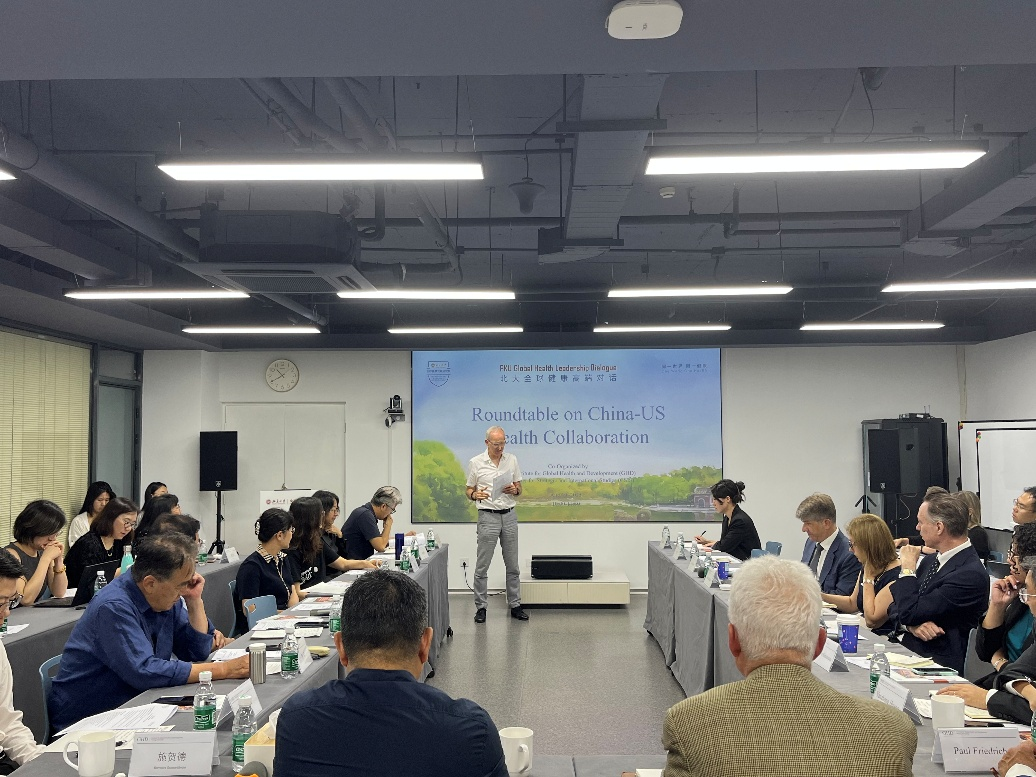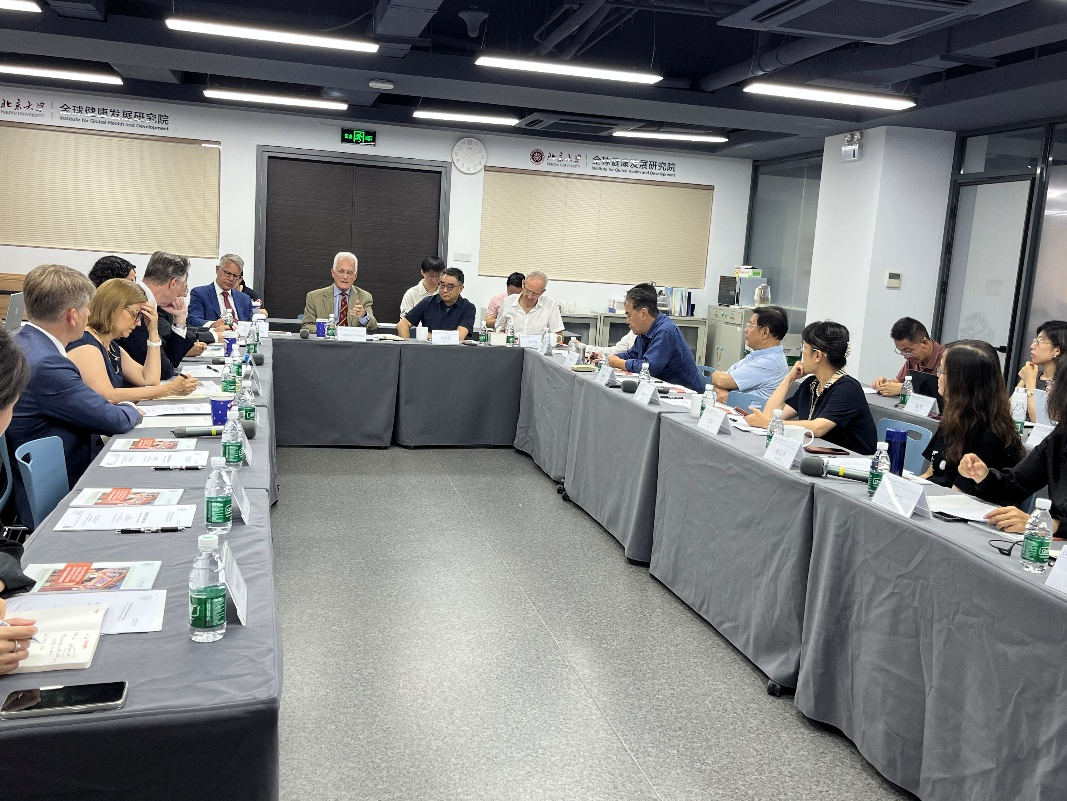On the morning of August 19, 2025, the Center for Strategic and International Studies (CSIS) visited the Institute for Global Health and Development at Peking University (PKU GHD). The “China-US Roundtable on Health Collaboration” was held at Peking University. More than 30 experts and scholars from universities, think tanks, and international organizations in both China and the United States gathered to engage in in-depth discussions on topics including global health, biosafety, chronic disease prevention and control, as well as artificial intelligence and pharmaceutical innovation. The event aimed to promote pragmatic cooperation amid a complex international landscape.
Bernhard Schwartländer, Distinguished Research Professor of Global Health at PKU GHD, delivered the welcome address. He emphasized that, in the face of multiple global uncertainties, health collaboration should serve as an important bridge for rebuilding trust and promoting peace between China and the United States.

Professor Gordon G. Liu, Dean of the PKU GHD, introduced the background of the institute’s establishment and its vision for development. Since its founding, the institute has continuously promoted interdisciplinary research and high-level dialogues between China and the United States, launching initiatives such as the “U.S.-CHINA TRACK II DIALOGUE ON HEALTHCARE” and the "Planetary Health Axis System (PHAS)" project. It has also actively harnessed cutting-edge technologies such as artificial intelligence and big data to empower scientific research and practice in the field of global health.
Dr. J. Stephen Morrison, Senior Vice President and Director, Global Health Policy Center, Center for Strategic and International Studies (CSIS), noted in his remarks that despite the many challenges currently facing U.S.–China relations—including disputes over biotechnology and tariff frictions—collaboration on healthcare continues to hold irreplaceable strategic and humanitarian value. He highlighted that it is imperative for both countries to deepen mutual trust, reach broader consensus, and work together to advance global public health through ongoing, constructive engagement.
Further discussions also touched on the linkages between public health, political dynamics, and security. Professor Zhang Qingmin of Peking University pointed out that health issues are often influenced by political factors and called for moving beyond short-term competition to build sustainable mechanisms for collaboration. Dr. Paul Friedrichs, Senior Adviser (Non-resident), Global Health Policy Center, CSIS, underscored the importance of establishing a global biosurveillance network to better prepare for potential future public health crises. Professor Jing Jun of Tsinghua University reviewed the past achievements of U.S.–China collaboration in areas such as HIV/AIDS and SARS.
Experts further offered recommendations on topics including artificial intelligence and biosecurity, joint prevention and control of chronic diseases, and the health impacts of climate change. Yanzhong Huang, Senior Fellow for Global Health, Council on Foreign Relations and Member, stressed the importance of managing the security risks of biotechnology while avoiding “over-securitization” that could hinder scientific collaboration. Zhang Yawei, Director of the Department of Cancer Prevention and Control at China’s National Cancer Center, suggested that the U.S. and China could strengthen joint research on chronic disease prevention and management, particularly by exploring new models of data sharing and policy coordination. Participants unanimously agreed that both countries should maintain ongoing high-level and academic exchanges to foster trust, deepen cooperation, and work together to build a more resilient, inclusive, and sustainable global health system—providing strong safeguards against transnational public health challenges.
In conclusion, Professor Qin Xuezheng, Associate Dean of the GHD, emphasized that health represents a vital area of shared interest between China and the United States. He proposed advancing substantive cooperation in key fields such as biosecurity, the application of artificial intelligence in healthcare, cancer prevention and control, preparation for the next pandemic, and health adaptation to climate change. He further called for transforming dialogue into concrete action through scholar exchanges, joint research initiatives, and the development of policy briefs.
